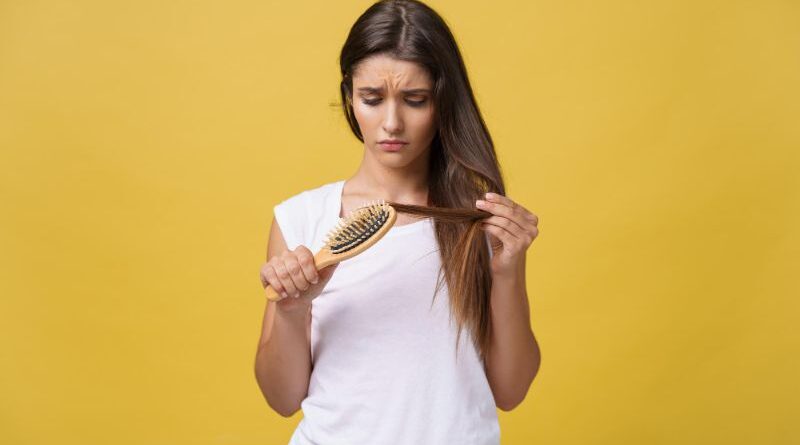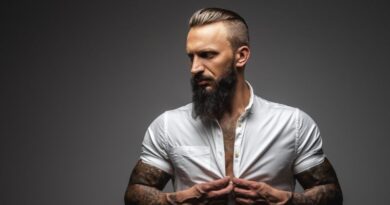Hair loss can be a concerning issue, even in babies. While some hair loss is normal during infancy, certain bad eating habits may contribute to excessive hair loss. In this blog post, we will explore five bad eating habits that may cause hair loss in babies. By understanding and addressing these habits, parents can promote healthy hair growth in their little ones.
We will discuss the impact of nutrient deficiencies, excessive sugar consumption, inadequate hydration, unhealthy fats, and a lack of protein on hair health. Additionally, we will provide tips on how to establish healthy eating habits for your baby to support optimal hair growth.
By addressing these bad eating habits and providing a well-balanced diet, parents can help their babies maintain healthy and beautiful hair. Let’s delve into the topic of bad eating habits and their impact on baby hair loss.
Avoid These Bad Eating Habits That May Cause Hair Loss
From nutrient deficiencies to excessive processed food consumption, understanding these habits is the first step in fostering a diet that promotes not just a vibrant body but also healthy and robust hair. Let’s delve into the impact of our eating choices on our locks and discover ways to cultivate a nutritional approach that supports both our general health and a luscious head of hair.
1. Excessive Sugar Consumption
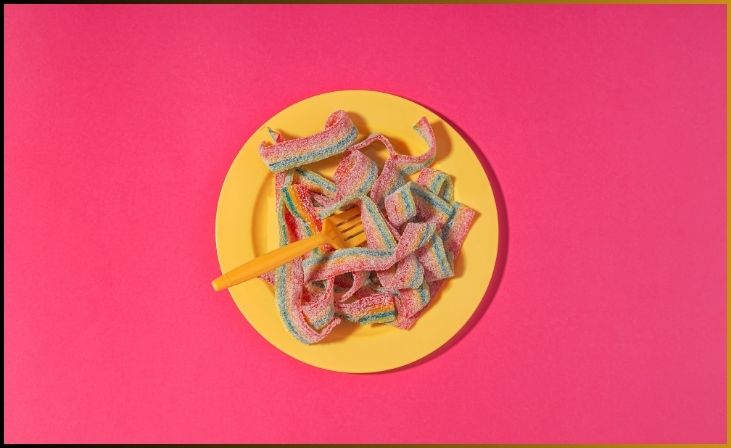
Indulging in a sweet tooth occasionally is a common delight, yet it’s essential to be mindful of the potential repercussions on your hair health. Excessive sugar consumption, characteristic of diets rich in sugary foods and beverages, can instigate detrimental effects on the body. This includes the development of insulin resistance and inflammation, processes that may disrupt the natural hair growth cycle.
Over time, these disruptions can contribute to hair loss, as the follicles face challenges in maintaining their regular growth patterns. To foster healthy and resilient locks, it’s crucial to strike a balance in dietary choices, limiting the intake of excessive sugars and opting for a nutrient-rich diet that supports both your general well-being and the vibrancy of your hair.
Quick Link: 11 Tips for Promoting Healthy Baby Hair Growth
2. Low Protein Intake
Understanding the pivotal role of protein in hair health is crucial for maintaining a vibrant mane. As the fundamental building block of hair, protein provides essential amino acids necessary for robust hair growth. When protein intake is insufficient, the body lacks the building blocks required for healthy hair development. Given that hair is predominantly composed of protein, a deficiency in your diet can result in weakened hair strands and heightened hair shedding.
To nurture strong and resilient locks, prioritize protein-rich sources such as lean meats, beans, and nuts. This dietary approach not only supports your body’s overall nutritional needs but also ensures that your hair receives the foundational elements it requires for vitality and longevity.
3. Lack of Essential Nutrients
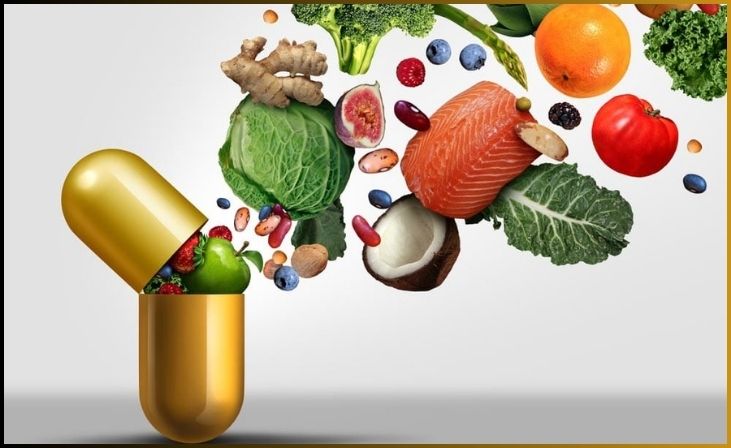
The intricate dance of maintaining overall health extends to the realm of our hair, necessitating a diverse array of vitamins and minerals. Iron, zinc, biotin, and vitamin D are among the key players crucial for the well-being of our locks. A deficiency in these nutrients can create a domino effect, negatively impacting hair health by compromising the strength and vitality of hair follicles. Iron, for instance, is vital for proper blood circulation to the scalp, ensuring that hair follicles receive the necessary oxygen and nutrients.
Zinc supports the hair’s protein structure, while biotin contributes to the synthesis of keratin, a key component of hair. Vitamin D, often associated with bone health, also plays a role in hair follicle health. Embracing a well-rounded, nutrient-rich diet is not just a boon for your body but a cornerstone for nurturing vibrant and resilient hair.
4. Crash Diets or Extreme Caloric Restriction
The allure of quick results through drastic weight loss measures such as crash diets or severe caloric restriction may be tempting, but it’s vital to recognize the potential consequences, especially concerning hair health. These practices can disrupt the body’s intricate natural processes, including the regulated cycle of hair growth. Nutritional deficiencies often accompany such extreme weight loss methods, leading to a cascade of adverse effects on overall health, including hair thinning and loss.
The body, in a state of deficiency, prioritizes essential functions over less critical ones, impacting the energy and nutrients available for healthy hair growth. To safeguard both your weight loss goals and your hair health, opting for sustainable and balanced dietary practices is key. This approach ensures that your body receives the nutrients it needs to thrive, promoting not only your overall well-being but also the lushness and strength of your precious locks.
Also Read: Embrace Your Gray Gracefully: 8 Natural Methods for Coloring Gray Hair
5. Unbalanced Diet
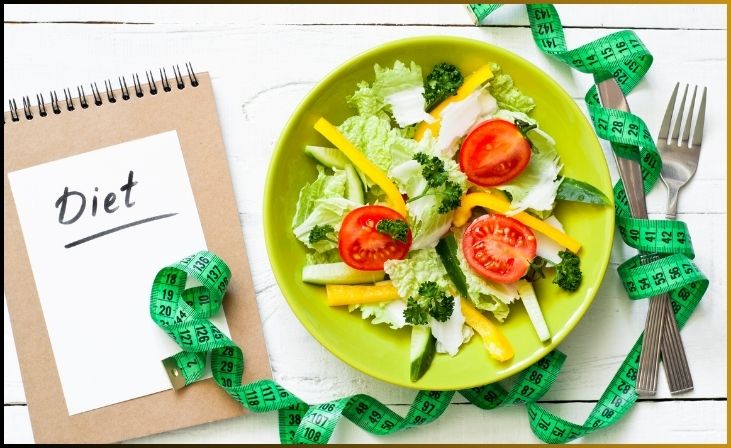
Elevating and sustaining hair health transcends the mere consumption of specific nutrients; it hinges on the harmony of overall dietary balance. The intricacies of a well-rounded diet extend beyond isolated nutrients, encompassing the broader spectrum of essential elements. A diet characterized by monotony and an abundance of processed foods can pave the way for nutrient imbalances, potentially impacting not only general well-being but also the health of your hair.
Optimal hair growth requires a symphony of nutrients derived from a diverse array of whole foods. By embracing a diet rich in fruits, vegetables, lean proteins, and whole grains, you create a nutrient-rich foundation that supports the flourishing vitality of your hair. This holistic approach not only nurtures your body’s nutritional needs but also ensures a robust ecosystem for your hair to thrive, fostering a radiant and resilient mane.
Bottom Line
In conclusion, bad eating habits can contribute to hair loss. Nutrient deficiencies, excessive sugar consumption, inadequate hydration, unhealthy fats, and a lack of protein can all negatively impact hair health. It is crucial for parents to establish healthy eating habits for their babies to promote optimal hair growth.
By providing a well-balanced diet that includes a variety of nutrient-rich foods, parents can ensure that their babies receive the necessary vitamins, minerals, and proteins for healthy hair growth. Encouraging hydration, limiting sugary foods, and avoiding unhealthy fats can also contribute to overall hair health.
Remember, hair loss in babies can also be influenced by factors such as genetics, hormonal changes, and normal growth patterns. If you have concerns about your baby’s hair loss, it is always best to consult with a pediatrician or healthcare professional for a proper evaluation and guidance.
By addressing bad eating habits and promoting a nutritious diet, parents can play an active role in supporting healthy hair growth in their babies and setting the foundation for a lifetime of good eating habits.
FAQs
Yes, crash diets that lack essential nutrients can lead to hair loss as the body may not receive the necessary vitamins and minerals for healthy hair growth.
High sugar intake can lead to inflammation, which may contribute to conditions like hair thinning and loss over time.
Dehydration can impact hair health, as the hair shaft is comprised of water. Inadequate hydration may lead to brittle and weak hair.
Diets high in fast food and processed meals often lack essential nutrients, which can adversely affect hair health and contribute to hair loss.

